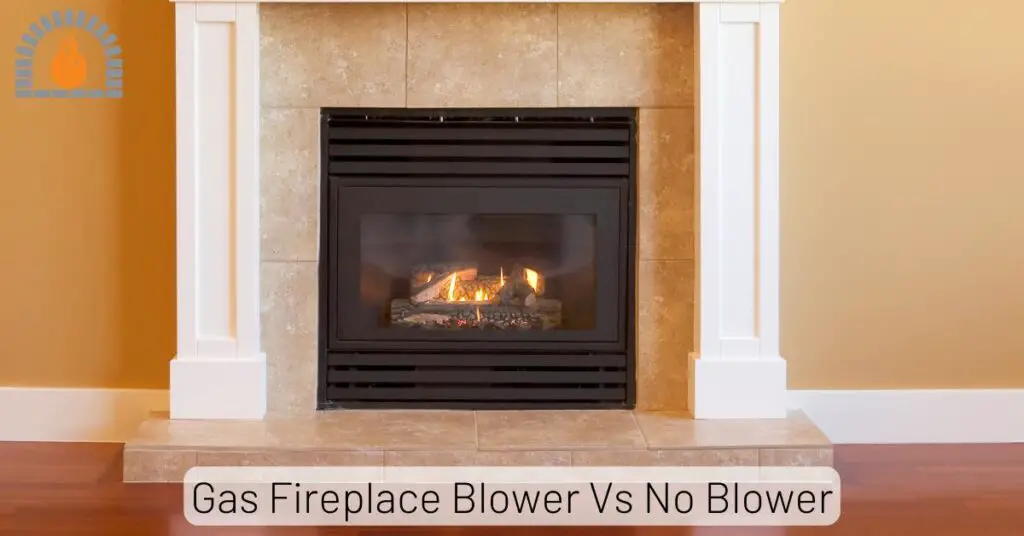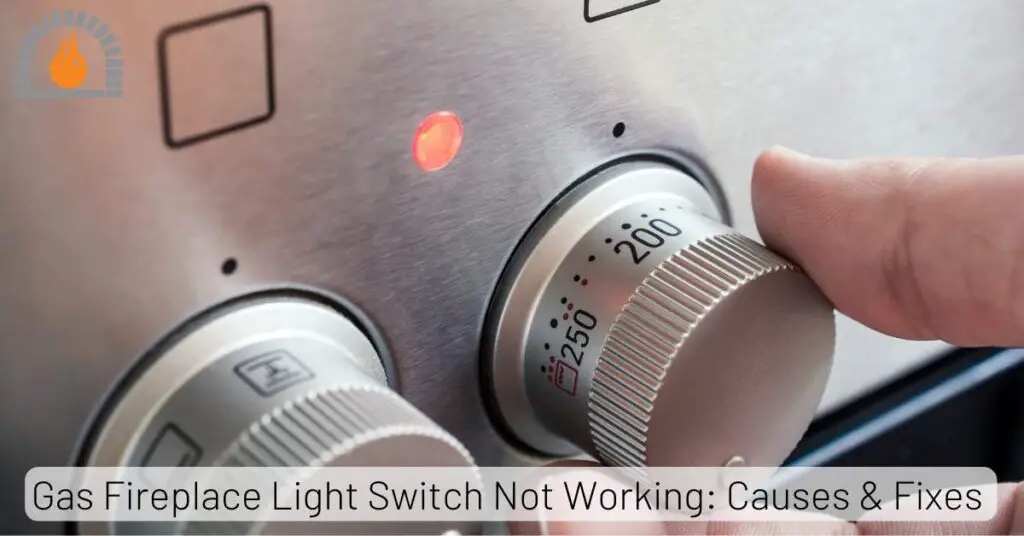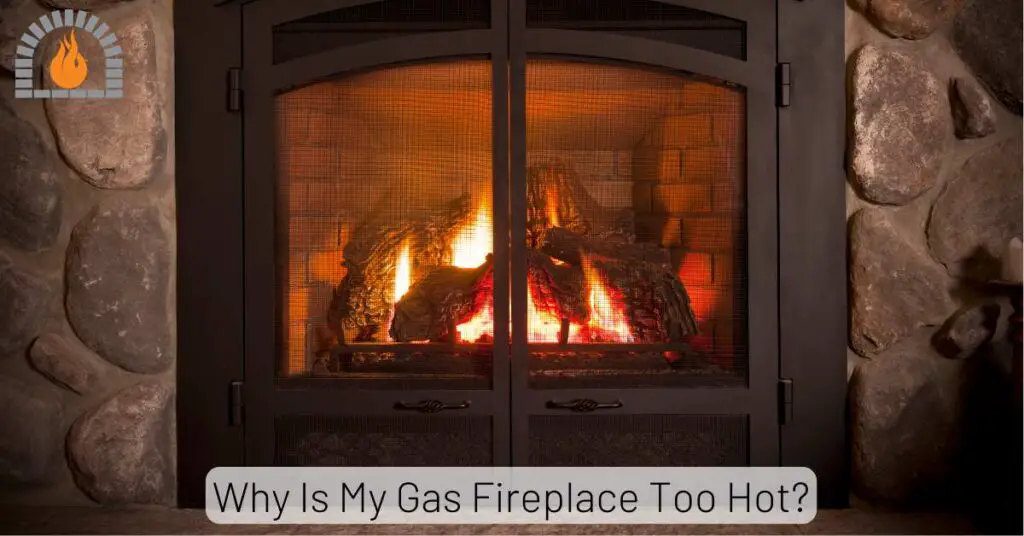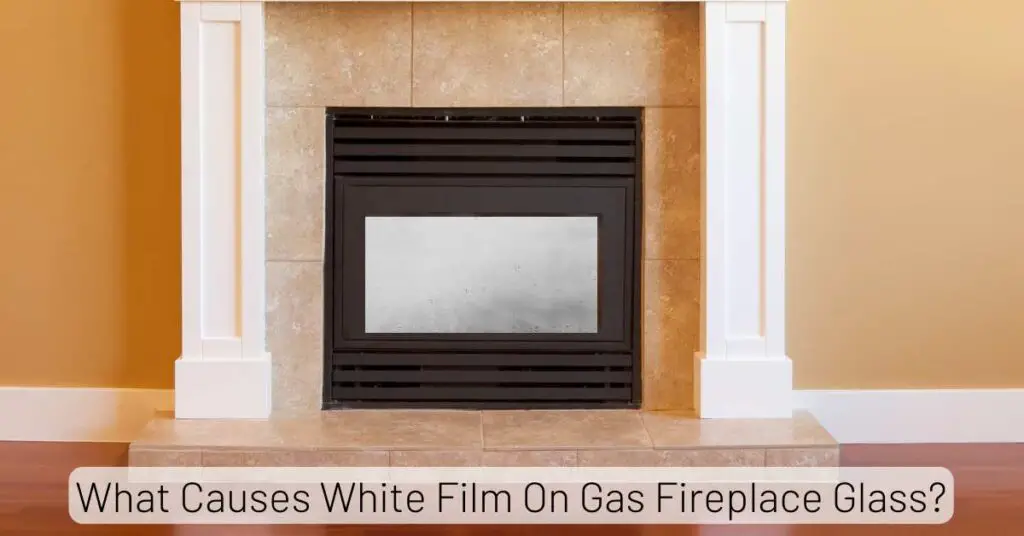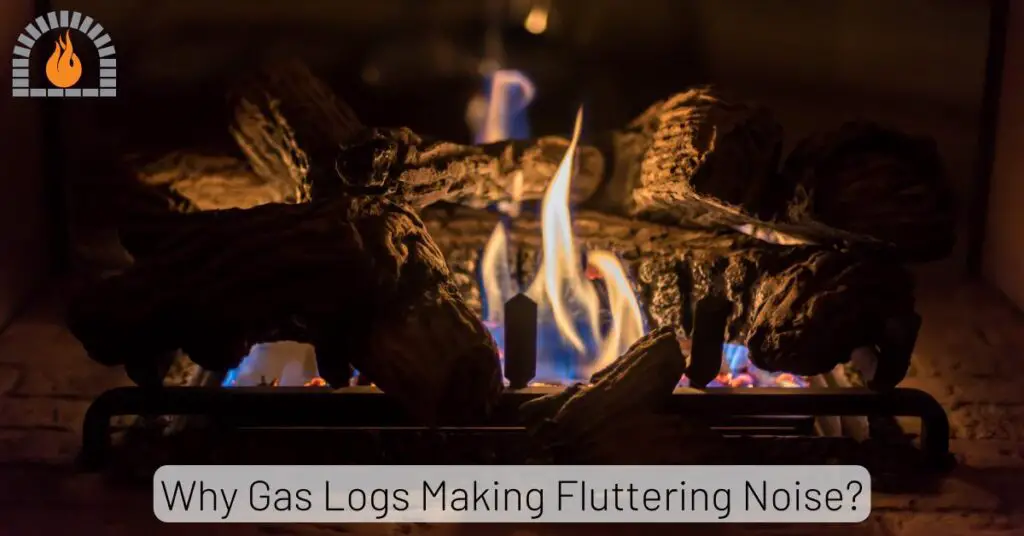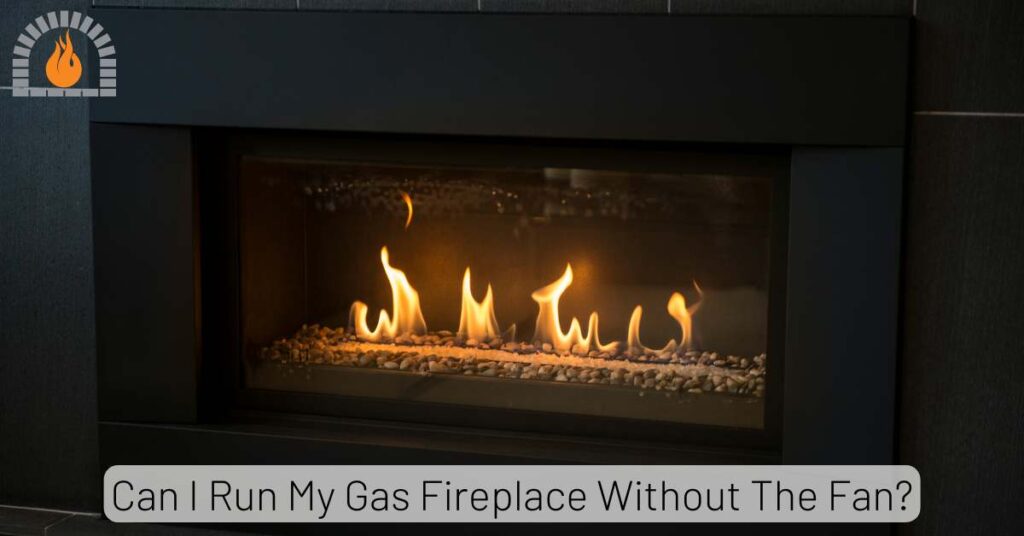Gas fireplaces offer warmth, ambiance, and convenience to homeowners. They are popular for creating a cozy atmosphere and adding an elegant touch to any living space. However, like any other appliance, gas fireplaces can experience issues that require attention. One such problem is delayed ignition, which can be frustrating and potentially hazardous.
A dirty or clogged burner is a common cause of gas fireplace delayed ignition. However, some other issues, including malfunctioning ignition system, problems with the gas supply, dirty pilot assembly, and faulty thermocouples, can cause delayed ignition.
This comprehensive guide will explore the causes of delayed ignition in gas fireplaces, discuss the associated risks, and provide troubleshooting tips to help you address the issue effectively.
Gas Fireplace Delayed Ignition
Delayed ignition in gas fireplaces refers to a situation where the burner does not ignite immediately upon activating the fireplace. Instead, there is a noticeable delay before the flames ignite.
This delay can range from a few seconds to several minutes, causing frustration and concern for homeowners. It is important to address delayed ignition promptly, as it can lead to various complications and pose a safety risk.
Causes and Fixes of Gas Fireplace Delayed Ignition
- Dirty Pilot Assembly
- Faulty Thermocouple
- Clogged Burners
- Low Gas Pressure
- Air in the Gas Line
- Faulty Ignition System
- Gas Supply Issues
Delayed ignition in a gas fireplace can occur due to various reasons. It’s essential to promptly identify and address these issues to ensure your fireplace’s safe and efficient operation.
Some common causes of delayed ignition and their respective fixes are:
1) Dirty Pilot Assembly
Cause: A pilot assembly covered in dirt, dust, or debris can lead to delayed ignition.
Fix: Clean the pilot assembly by following the manufacturer’s instructions. To Remove accumulated debris, use compressed air or a soft brush. Ensure that the pilot flame is strong and reaches the thermocouple.
2) Faulty Thermocouple
Cause: A malfunctioning thermocouple might not generate enough voltage to keep the gas valve open, resulting in delayed ignition.
Fix: Test the thermocouple with a multimeter to check its voltage output. If it’s below the manufacturer’s specified range, replace the thermocouple with a new one.
3) Clogged Burners
Cause: Accumulated dust, debris, or rust on the burners can obstruct the gas flow, leading to delayed ignition.
Fix:
- Turn off the gas supply and clean the burners thoroughly.
- Use a soft brush or a wire to remove any blockages.
- Ensure that the burners are dry before reassembling them.
4) Low Gas Pressure
Cause: Insufficient gas pressure can prevent the proper ignition of the gas fireplace, resulting in delayed ignition.
Fix: Check the gas pressure at the fireplace with a manometer. If the pressure is below the recommended range, contact a qualified technician to adjust the gas pressure or address any underlying gas supply issues.
5) Air in the Gas Line
Cause: Air trapped in the gas line can disrupt the gas flow and cause delayed ignition.
Fix: Bleed the gas line by turning off the gas supply and opening the gas valve for a few seconds. This will allow any trapped air to escape. Close the valve and attempt to relight the fireplace.
6) Faulty Ignition System
Cause: A malfunctioning ignition system, such as a faulty electronic igniter or ignition control module, can lead to delayed ignition.
Fix:
- Inspect the ignition system components for any visible damage or signs of wear.
- Replace any faulty components with compatible replacements.
- Consult the manufacturer’s instructions or contact a professional if needed.
7) Gas Supply Issues
Cause: Inadequate gas supply, such as a low gas meter capacity or issues with the gas line, can cause delayed ignition.
Fix: Contact your gas utility company to ensure the gas meter and supply line meet the necessary capacity requirements. If you suspect an issue with the gas line, contact a professional plumber or gas technician to assess and resolve the problem.
Risks Associated with Gas Fireplace Delayed Ignition
Delayed ignition poses several risks that should not be ignored. These include:
1. Gas Buildup
When the gas fails to ignite promptly, it can accumulate in the fireplace, creating a potentially dangerous situation. If the gas ignites suddenly, it could cause a fire or an explosion.
2. Carbon Monoxide (CO) Emission
An ignition delay can lead to incomplete combustion, resulting in the release of carbon monoxide (CO). Carbon Monoxide (CO) is an odorless and colorless toxic gas and can pose serious health risks if inhaled in high concentrations.
3. Excessive Heat
In some cases, delayed ignition can cause an excessive buildup of heat in the fireplace, damaging the internal components or even the surrounding structures.
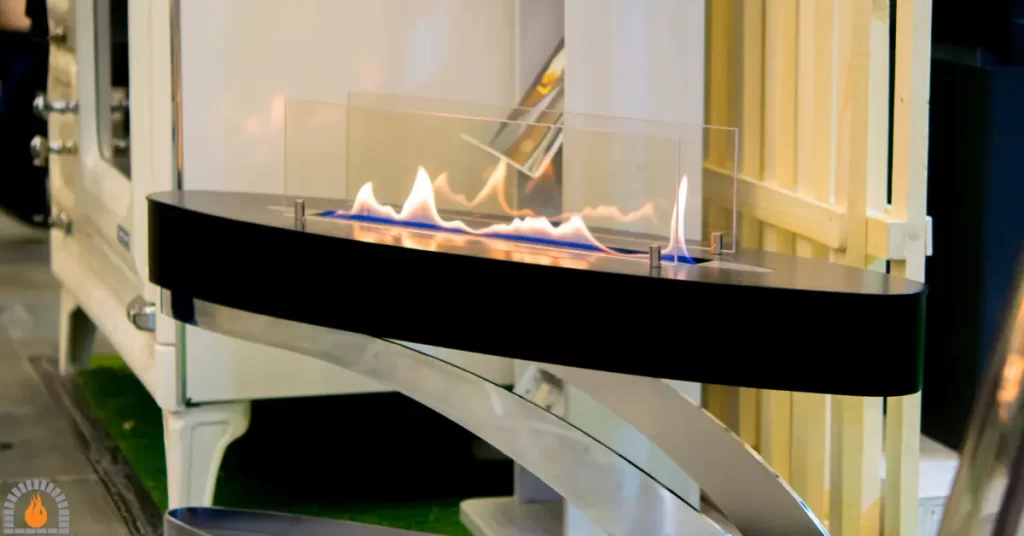
Is Delayed Ignition Dangerous?
Delayed ignition in a gas fireplace can be potentially dangerous and should be addressed promptly. When the ignition of a gas fireplace is delayed, gas builds up before it ignites, leading to a delayed and sometimes forceful ignition.
Here are a few reasons why delayed ignition can be dangerous:
- If a significant amount of gas accumulates before ignition, a delayed ignition can result in a sudden and forceful explosion, posing a risk of injury or property damage.
- Delayed ignition can also lead to flames or sparks being released into the surrounding area when the gas ignites. This can cause nearby flammable materials, such as curtains or furniture, to catch fire.
- Incomplete combustion due to delayed ignition can produce higher levels of carbon monoxide, a toxic gas. Prolonged exposure to carbon monoxide can be life-threatening.
To ensure safety, addressing any issues related to delayed ignition in a gas fireplace is crucial. Here are some steps you can take:
- Contact a qualified technician or fireplace specialist to inspect and diagnose the problem. They will have the necessary expertise to identify and resolve the underlying issue.
- Until the problem is fixed, avoiding using the gas fireplace is advisable to minimize the risk of accidents. This includes refraining from attempting any repairs yourself if you are not qualified.
- Install carbon monoxide detectors installed in your home, especially if you have a gas fireplace or other gas appliances. These detectors will alert you to any dangerous levels of carbon monoxide.
Why Does the Gas Fireplace Pilot Light Go Out When Turned On?
Several potential factors could contribute to the issue when a gas fireplace pilot light repeatedly goes out upon being turned on.
One common culprit is a malfunctioning thermocouple, which fails to generate sufficient voltage to keep the gas valve open, resulting in the extinguishing of the pilot light.
Another possibility is a dirty or clogged pilot orifice, obstructing the gas flow and causing a weak flame or complete shutdown.
Inadequate gas pressure can also prevent the pilot light from remaining lit. Furthermore, drafts or improper ventilation can disrupt the flame, extinguishing it. Lastly, problems with the gas supply, such as closed valves or interruptions in service, may play a role.
To ensure the safe and optimal functioning of the gas fireplace, it is recommended to seek help from a qualified technician or professional fireplace service.
They possess the expertise to accurately diagnose and address the underlying cause, rectifying the issue effectively.
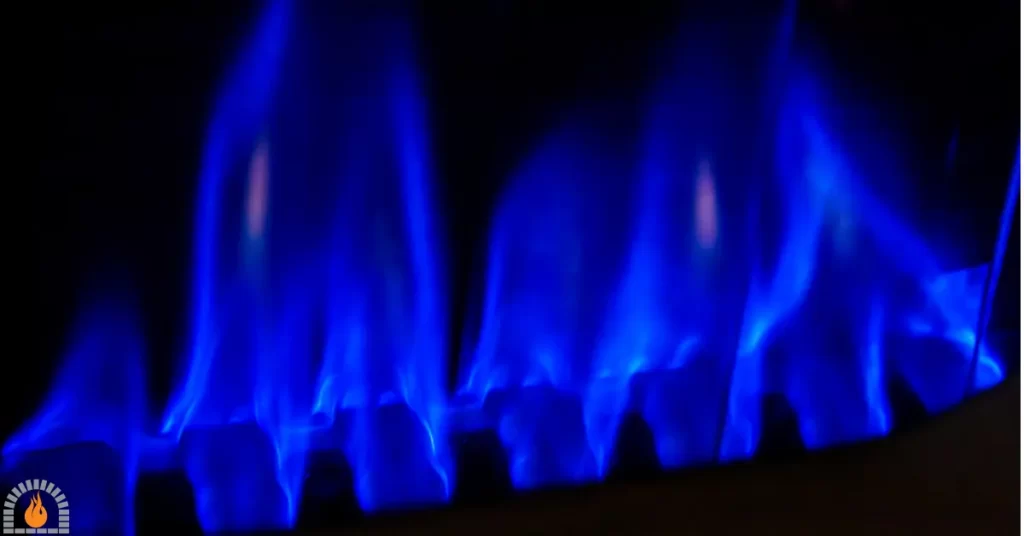
You May Also Like To Read:
FAQ
Why does a gas fireplace loud pop?
A gas fireplace can sometimes produce a loud pop sound due to a phenomenon called “ignition delay.” Ignition delay occurs when there is a buildup of gas in the fireplace before it ignites. When the gas finally ignites, it can create a sudden burst of flame and a popping sound.
Why is my gas fireplace sparking but not igniting?
There could be a few reasons for this issue. It might be due to a clogged or dirty burner, insufficient gas supply, a faulty ignition system, or a problem with the pilot light. It is best to consult a professional technician to diagnose and fix the problem.
How do you fix a low flame on a gas fireplace?
Various factors can cause a low flame in a gas fireplace. You can try a few troubleshooting steps to resolve the issue:
- Check the gas supply and ensure it is sufficient.
- Clean the burner and remove any debris or blockages.
- Adjust the air shutter to allow for more oxygen.
- Ensure the gas valve is fully open.
If the problem persists, it’s recommended to seek assistance from a qualified technician.
Why does a gas fireplace stay on when the switch is off?
If your gas fireplace remains on even when the switch is off, it indicates a potential problem with the switch or the control system. There might be a faulty switch, a malfunctioning thermostat, or an issue with the wiring.
It is crucial to address this situation promptly, as it can be a safety hazard. Contact a professional technician to inspect and repair the fireplace to ensure it operates safely and correctly.
My Final Thoughts
The phenomenon of gas fireplace delayed ignition poses significant risks and concerns for homeowners. This issue, characterized by a delay in the ignition of the gas when starting the fireplace, may sometimes lead to dangerous situations such as gas buildup and sudden combustion.
While several factors can contribute to delayed ignition, homeowners must prioritize regular maintenance and professional inspection of their gas fireplaces to prevent such incidents. Prompt detection and resolution of ignition delays ensure safety.
By staying vigilant and taking proactive measures, homeowners can enjoy the warmth and comfort of their gas fireplaces without compromising their safety.
Affiliate Disclosure: Fireplaceadviser.com is a participant in the Amazon Services LLC Associates Program. We may earn a commission when you click on certain links on this site and purchase.

Hello!! I am Jamal Khan. I often fix my home electric heaters and gas stove problems and research the common issues in the heating units to improve my knowledge and expertise. The aim of establishing fireplaceadviser.com is to share my expertise and knowledge with my audience.






